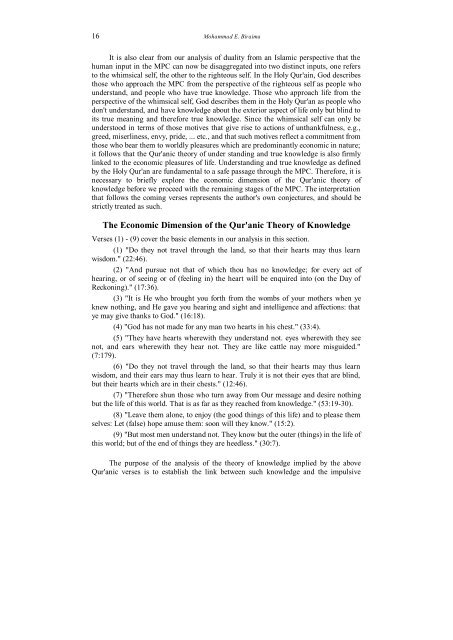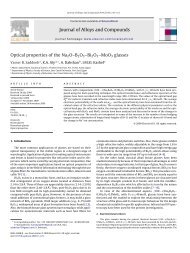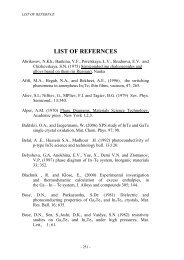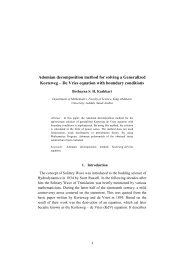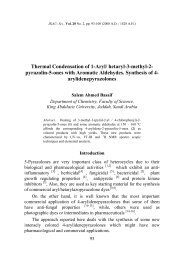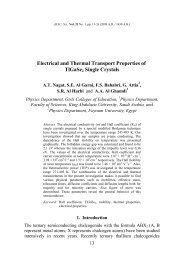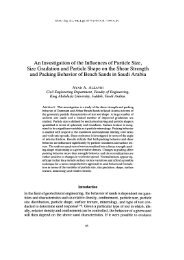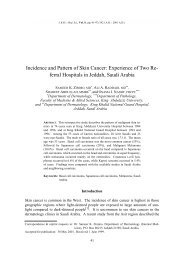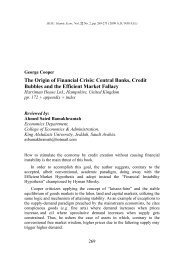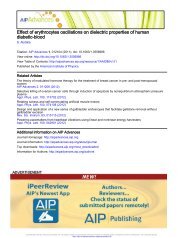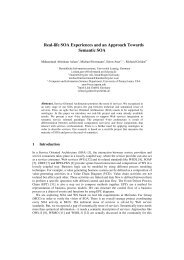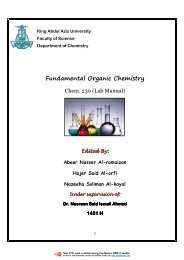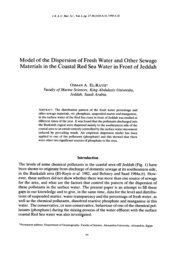A Qur'anic Model for a Universal Economic Theory
A Qur'anic Model for a Universal Economic Theory
A Qur'anic Model for a Universal Economic Theory
Create successful ePaper yourself
Turn your PDF publications into a flip-book with our unique Google optimized e-Paper software.
16 Mohammad E. Biraima<br />
It is also clear from our analysis of duality from an Islamic perspective that the<br />
human input in the MPC can now be disaggregated into two distinct inputs, one refers<br />
to the whimsical self, the other to the righteous self. In the Holy Qur'ain, God describes<br />
those who approach the MPC from the perspective of the righteous self as people who<br />
understand, and people who have true knowledge. Those who approach life from the<br />
perspective of the whimsical self, God describes them in the Holy Qur'an as people who<br />
don't understand, and have knowledge about the exterior aspect of life only but blind to<br />
its true meaning and there<strong>for</strong>e true knowledge. Since the whimsical self can only be<br />
understood in terms of those motives that give rise to actions of unthankfulness, e.g.,<br />
greed, miserliness, envy, pride, ... etc., and that such motives reflect a commitment from<br />
those who bear them to worldly pleasures which are predominantly economic in nature;<br />
it follows that the <strong>Qur'anic</strong> theory of under standing and true knowledge is also firmly<br />
linked to the economic pleasures of life. Understanding and true knowledge as defined<br />
by the Holy Qur'an are fundamental to a safe passage through the MPC. There<strong>for</strong>e, it is<br />
necessary to briefly explore the economic dimension of the <strong>Qur'anic</strong> theory of<br />
knowledge be<strong>for</strong>e we proceed with the remaining stages of the MPC. The interpretation<br />
that follows the coming verses represents the author's own conjectures, and should be<br />
strictly treated as such.<br />
The <strong>Economic</strong> Dimension of the <strong>Qur'anic</strong> <strong>Theory</strong> of Knowledge<br />
Verses (1) - (9) cover the basic elements in our analysis in this section.<br />
(1) "Do they not travel through the land, so that their hearts may thus learn<br />
wisdom." (22:46).<br />
(2) "And pursue not that of which thou has no knowledge; <strong>for</strong> every act of<br />
hearing, or of seeing or of (feeling in) the heart will be enquired into (on the Day of<br />
Reckoning)." (17:36).<br />
(3) "It is He who brought you <strong>for</strong>th from the wombs of your mothers when ye<br />
knew nothing, and He gave you hearing and sight and intelligence and affections: that<br />
ye may give thanks to God." (16:18).<br />
(4) "God has not made <strong>for</strong> any man two hearts in his chest." (33:4).<br />
(5) "They have hearts wherewith they understand not. eyes wherewith they see<br />
not, and ears wherewith they hear not. They are like cattle nay more misguided."<br />
(7:179).<br />
(6) "Do they not travel through the land, so that their hearts may thus learn<br />
wisdom, and their ears may thus learn to hear. Truly it is not their eyes that are blind,<br />
but their hearts which are in their chests." (12:46).<br />
(7) "There<strong>for</strong>e shun those who turn away from Our message and desire nothing<br />
but the life of this world. That is as far as they reached from knowledge." (53:19-30).<br />
(8) "Leave them alone, to enjoy (the good things of this life) and to please them<br />
selves: Let (false) hope amuse them: soon will they know." (15:2).<br />
(9) "But most men understand not. They know but the outer (things) in the life of<br />
this world; but of the end of things they are heedless." (30:7).<br />
The purpose of the analysis of the theory of knowledge implied by the above<br />
<strong>Qur'anic</strong> verses is to establish the link between such knowledge and the impulsive


